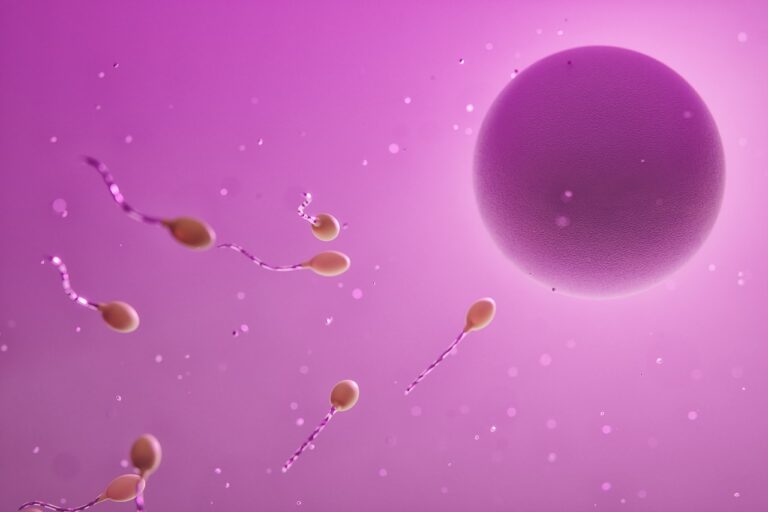Men who apply to become sperm donors are evaluated for health issues, family history and a physical exam. Some sperm banks set height and other criteria that vary by institution.
All donors undergo extensive genetic testing to prevent the transmission of inheritable diseases. They are also asked whether they want to be contacted by children conceived from their semen.
What is a sperm donor?
Sperm donors donate semen to help an infertile person or couple conceive a child. The donated sperm is used for intrauterine insemination (IUI) at a fertility clinic or intracervical insemination (ICI) at home to fertilize an egg. The donor may be known to the recipient or anonymous. It is important that couples or individuals who decide to use donor sperm speak with a counselor about the long-term impact of this arrangement.
Men who wish to donate sperm must undergo thorough initial and periodic screening. A physician will ask the donor detailed questions about his personal health history, family medical history and sexual history. He will also be tested for HIV, hepatitis B and C, syphilis, chlamydia, cytomegalovirus (CMV), cystic fibrosis and fragile X syndrome. He will also be asked to give blood, urine and semen samples.
Donors must be at least the legal age for their state, usually between 18 and 40. They must have a healthy lifestyle and good sex drive. They must not have a family history of hereditary diseases, be HIV positive or have a known genetic disorder. They must pass a background check and psychological exam and provide a childhood photo. Donors can choose to remain anonymous or agree to be contacted by the children who are conceived with their sperm when they reach legal adulthood.
Why is a sperm donor needed?
Sperm donors are needed by infertile individuals or couples who want to become parents through artificial insemination. Increasingly, single women and lesbian couples are using donated sperm to achieve their fertility goals. A sperm donor can provide a clear path to parenthood without the legal, personal or custody challenges that might otherwise stall the process.
A sperm donor can be known (sometimes called a directed donor) or anonymous. Known donors are usually friends, family members or acquaintances who have agreed to help an individual or couple conceive a child. They are required to undergo the same screening process as an anonymous donor, but their identity is revealed to the recipient. These donors often play a significant role in the lives of the children they have helped to create, attending birthdays, graduations and marriages.
The American Society of Reproductive Medicine recommends that couples who intend to use sperm from a known donor seek psychological counseling. It is also important to discuss with your partner and any other family members how you plan to parent a child conceived with donated sperm.
Generally, sperm donors must be between the ages of 18 and 39, are in good health and do not have infectious diseases such as HIV, hepatitis or gonorrhea. Men with certain genetic disorders, such as cystic fibrosis, are also not eligible to donate.
How does a sperm donor become a donor?
Becoming a sperm donor takes a lot of time and money. In addition to a thorough medical and genetic screening, including detailed family medical history (some agencies require two or three generations), the man will need to submit several semen samples. These will likely be collected via masturbation and then frozen for testing. Those that pass the initial tests will then be paid per specimen deposited, with some banks paying more for higher-quality samples.
Sperm donors also undergo a physical exam, and are tested for infectious diseases like HIV, hepatitis B and hepatitis C. They must also give blood, urine and semen samples as well as answer a number of questions about their sexual habits, drug use and goals. Some sperm banks have additional requirements, such as height, education level and work status and some perform criminal background checks on potential donors.
A man who chooses to donate his sperm typically agrees to contact any children conceived using his semen when they reach legal age, but he can also remain anonymous. Sperm donation is commonly used to treat infertility. It can be used for artificial insemination through intrauterine insemination (IUI), intracervical insemination or in vitro fertilization, which may involve intracytoplasmic sperm injection (ICSI). Sperm donations can be made by individuals, couples or with the help of professionals.
What is the process of becoming a sperm donor?
Becoming a sperm donor is not an easy job. Men must undergo an extensive screening process to ensure that they are healthy enough to donate sperm. This includes passing genetic and health tests, as well as a thorough physical and interview with the sperm bank staff. In addition, donors must be at least 18 and have no sexually transmitted diseases or other medical conditions that could affect their fertility. Some sperm banks also have height, education, work status and other requirements that vary by institution. Donors are paid from $40 to $100 for each semen sample they donate. This can add up to thousands of dollars a year, but most men are not motivated by altruism.
Most sperm banks are located near universities, as these areas tend to have large numbers of intelligent and virile young men. College students make up 50 to 90 percent of all sperm donors. These men are in high demand among infertile couples who want children. Donors must pass a basic background check and genetic test to be accepted for the program, and many will agree to allow children conceived from their sperm to contact them at some point in the future.
The process is often lengthy and time-consuming, especially for men who have to travel far to get to the sperm bank. In addition, donors must abstain from ejaculation during sex or masturbation in order to provide a quality sample.
See Also:



